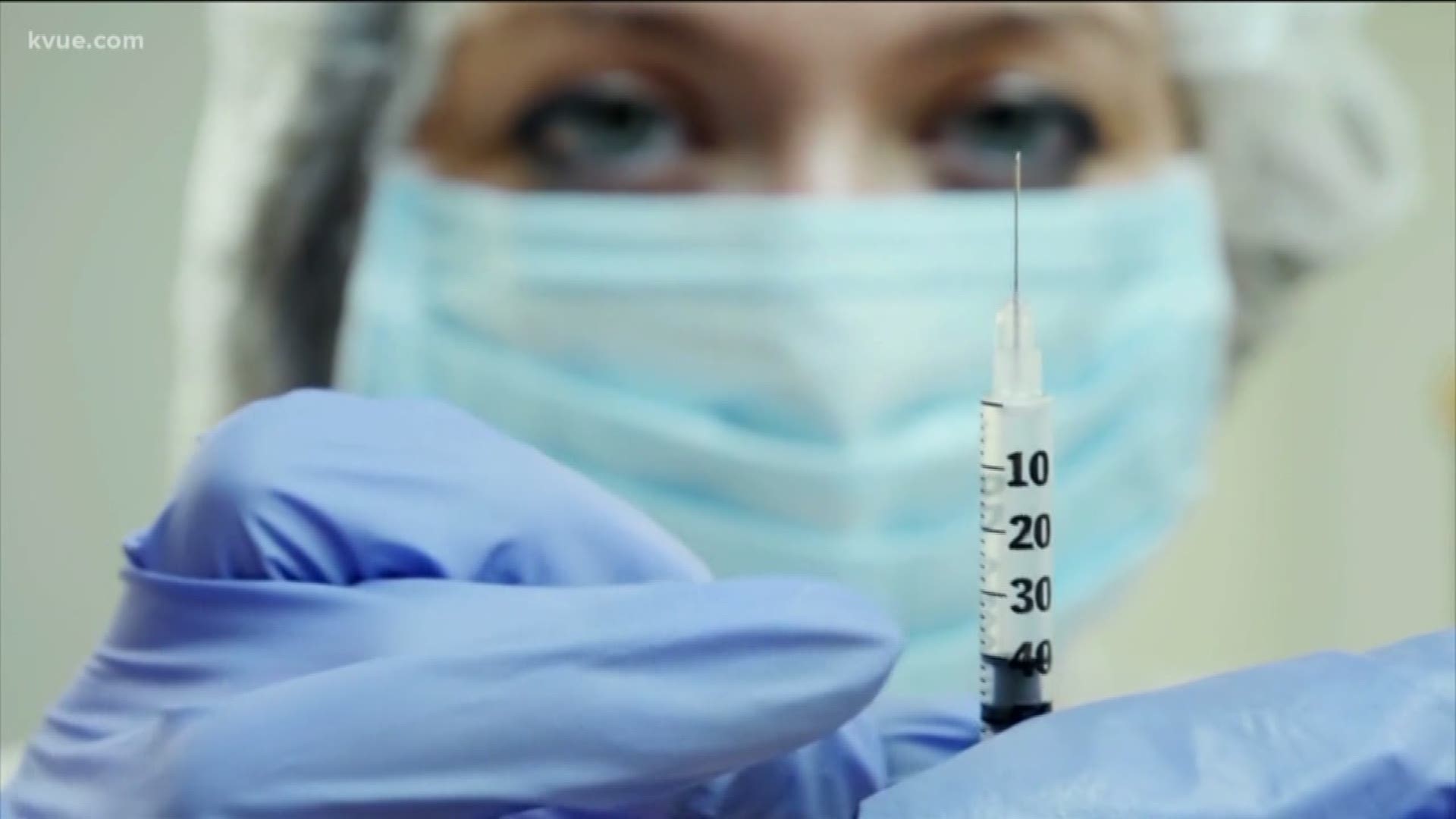AUSTIN, Texas — Researchers in Denmark studied more than 650,000 people and found there is not a link between the MMR vaccine and autism.
The study's conclusion stated that the "MMR vaccination does not increase the risk for autism, does not trigger autism in susceptible children and is not associated with clustering of autism cases after vaccination."
A local doctor said he isn't surprised by the study's findings.
"This wasn’t like a major headline for me," said Dr. Colin Vokes with Baylor Scott and White. "I’ve read these studies over the years and, unfortunately, with some bad science conducted a couple decades ago and then celebrities getting on board with the anti-vax movement – they’ve got good PR, it’s hard for doctors to fight against that."
Dr. Vokes said the study hits close to home right now due to the recent case of measles and the case of rubella in Travis County.
RELATED:
Travis County confirms its first case of rubella since 1999, less than a month after finding measles
"The scientific community, in general, all support vaccination and yet we’re still seeing people that are resistant to getting vaccinated because of fears that they are linked to autism or other diseases, toxins in vaccinations and that’s simply not true," Dr. Vokes said.
He said the vaccine isn't 100% effective, but the more people that get vaccinated, the less chance of exposure there is.
Dr. Vokes said he hopes people will trust their doctor's judgment.
"If you trust us with doing your physical and your well-woman exam and to care for your children and to prescribe antibiotics when needed, you should trust us when we say vaccines are safe," he said.
He also noted that while it's suggested for children to get the MMR vaccine, it's never too late. If someone is not sure if they've been vaccinated, Dr. Vokes said doctors can do a blood test to check.
PEOPLE ARE ALSO READING:

